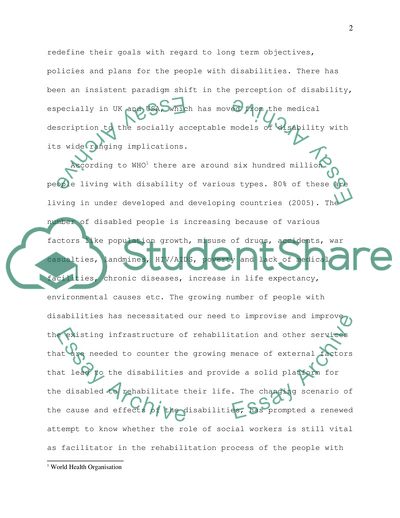Cite this document
(A Support Worker in Empowering People with Learning Difficulties Essay, n.d.)
A Support Worker in Empowering People with Learning Difficulties Essay. https://studentshare.org/social-science/1712750-my-roles-as-a-support-worker-towards-the-empowerment-of-people-with-learning-difficulties
A Support Worker in Empowering People with Learning Difficulties Essay. https://studentshare.org/social-science/1712750-my-roles-as-a-support-worker-towards-the-empowerment-of-people-with-learning-difficulties
(A Support Worker in Empowering People With Learning Difficulties Essay)
A Support Worker in Empowering People With Learning Difficulties Essay. https://studentshare.org/social-science/1712750-my-roles-as-a-support-worker-towards-the-empowerment-of-people-with-learning-difficulties.
A Support Worker in Empowering People With Learning Difficulties Essay. https://studentshare.org/social-science/1712750-my-roles-as-a-support-worker-towards-the-empowerment-of-people-with-learning-difficulties.
“A Support Worker in Empowering People With Learning Difficulties Essay”. https://studentshare.org/social-science/1712750-my-roles-as-a-support-worker-towards-the-empowerment-of-people-with-learning-difficulties.


